The Cure |
||
LATEST NEWS | CAST & CREW |
||
Keeping It Real |
|
Many films forgo scientific authenticity in favour of what looks cool or interesting. For this film we're seeking to ensure the processes and visuals match that of a realistic pharmaceutical lab. Dr George Slim Phd has joined the project to ensure just that.
What is your chemistry background? I started out as a classical synthetic organic chemist – making very difficult molecules to show that you can. Pretty soon I got involved in making biological molecules because they do something useful. It’s fascinating to work out how a very small change in a molecule can make big changes in the way it works in biology. By the time I finished at the lab bench I was working with complex carbohydrates which are very hard to make and also have a huge effect on human health which makes them worth the effort.
What attracted you to the film project?
How do you see your contribution? I think I bring two things to the film. The easy bit is that since leaving the lab I’ve been involved in government and now run my own consultancy (Rhadegund Life Sciences, www.rls.co.nz) so I know an awful lot of people in the science system. If the producers want a particular type of lab to film in or a different kind of science location then I can find it for them. The second is that I have a solid background in doing science, especially chemistry, but I’ve been away from the bench long enough, and spent enough time explaining science to non-scientists, that I can help the science in the film be engaging but still ‘real’. I’m hoping that people will go, ‘Wow, that looked cool’ without someone with a bit of experience saying ‘actually it was crap.’ I guess we’ll see how that works out.
I’m mostly looking forward to helping build a convincing set and showing actors how to look like they are really doing interesting chemistry in it. You wouldn’t get away with using a saucepan upside down in a cooking show so why is the equivalent in a lab ok on film? Contact: george.slim@rls.co.nz
|
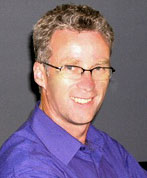
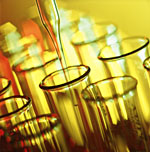
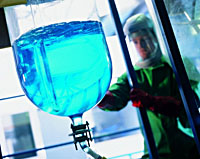 Mostly the idea that I could help make a film with science that would be interesting to watch but not too misleading and not too embarrassing for scientists to sit through. There is an increasing amount of science in the media, which is great, but some of it is shown in a pretty slap-dash sort of way that gives people the wrong idea about science and scientists. I think in this project it should be entertaining without having to be completely false.
Mostly the idea that I could help make a film with science that would be interesting to watch but not too misleading and not too embarrassing for scientists to sit through. There is an increasing amount of science in the media, which is great, but some of it is shown in a pretty slap-dash sort of way that gives people the wrong idea about science and scientists. I think in this project it should be entertaining without having to be completely false.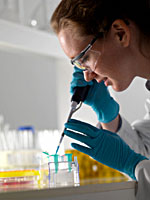
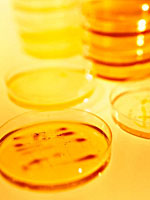 What are you looking forward to during the filming?
What are you looking forward to during the filming?